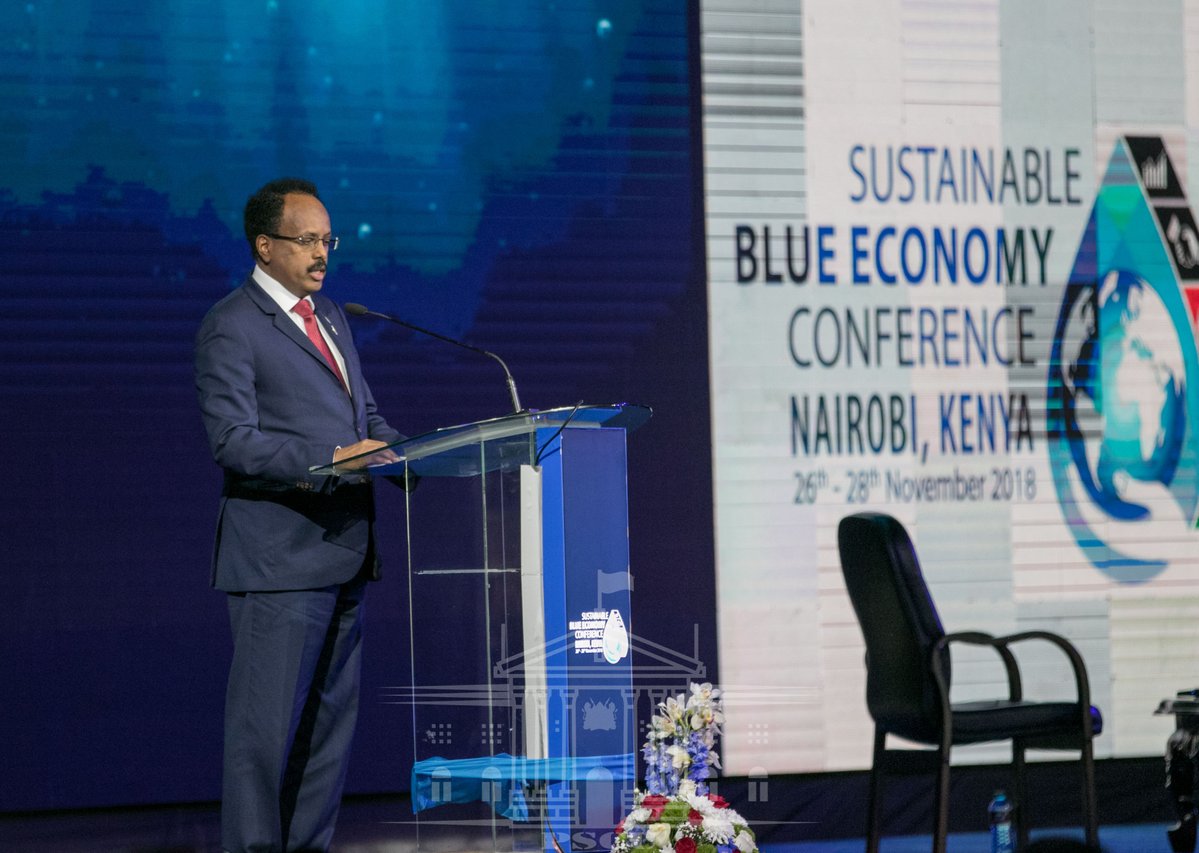Countering illegal fishing and toxic dumping key to sustainable Blue Economy-President Farmaajo

By T. Roble
President Mohamed Farmaajo has called for international collaboration to counter illegal fishing, waste dumping, and other illegal activities in the Indian Ocean noting his country was committed to collaborating with countries in the region and beyond to ensure sustainable and legal use of the water resources.
Addressing the first ever Blue Economy Conference in Nairobi which aims at sustainable use of water resources, President Farmaajo said the realisation of blue economy dividends was dependent on securing the water bodies from illegal activities which he noted had adversely affected Somalia.
“As we talk about creating sustainable maritime resources and the need for investments and industries, it is important to first talk about the illegal activities of our coast,” Farmaajo said. The most common barriers to the Somali coast are foreign illegal fishing, illegal charcoal production and dumping of toxic waste.”
According to the campaign group Secure Fisheries, foreign vessels take three times more fish than Somalis do – 132,000 metric tons each year compared to 40,000 by locals.
A UN Monitoring Group report said this month dhows with forged registration documents were transporting illegal charcoal from Somalia through Iran and destined for United Arab Emirates in violation of charcoal ban imposed by the U.N and Somali government.
In his address to the over 4,000 delegates meeting in Nairobi, President Farmaajo said it was imperative to secure the water resources to ensure transparent and sustainable use.
“My administration will continue to create global partnerships to resolve these issues. We believe that if we have a transparent and collaborative partnership and benefit from the development of the technology and the satellites, we will be able to stop these movements,” the President said.
The conference co-hosted by Kenya, Canada and Japan seeks to tap into the potential of blue economy based on sustainable use and conservation of aquatic resources, including seas lakes rivers oceans.